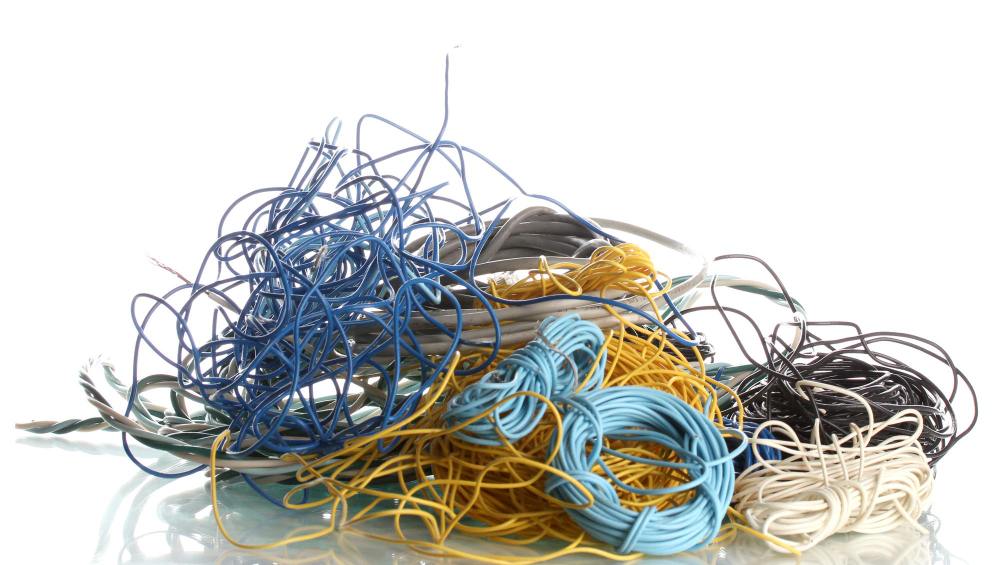
NOV 02, 2024
How to Turn Scrap Cables into Sustainable Solutions
When cables become damaged, outdated, or no longer needed, they are often tossed aside. Most people don’t realize that old cables aren’t just trash—RCM describes them as full of valuable materials that can be reused. Learning how to turn scrap cables into sustainable solutions through scrap metal recycling helps the environment and even brings some money back into your pocket.
Why Recycling Scrap Cables is Important
Every cable comprises various materials, like copper, aluminum, and plastic. When these cables are thrown away, they sit in landfills, where they don’t break down easily and can harm the environment. Mining is hard on the environment—it takes a lot of energy, disrupts wildlife, and pollutes land and water.
What’s Inside a Cable?
Most cables have three main parts: the conductor, the insulator, and the jacket.
- The Conductor: This is usually made of copper or aluminum. Copper, in particular, is precious because it’s an excellent conductor of electricity. Copper is one of the main reasons scrap metal recycling companies are interested in old cables.
- The Insulator: This layer covers the conductor to keep the electrical current safely inside. It’s usually made from plastic or rubber. Although plastic isn’t as valuable as metal, it can still be repurposed in some cases.
- The Jacket: The outermost layer is often plastic but may be reinforced with other materials to add strength.
By separating and recycling each part, scrap metal buyers and scrap metal companies in Atlanta can reclaim materials that would otherwise go to waste.
How to Prepare Scrap Cables for Recycling
If you’re interested in recycling scrap cables, you can take a few steps to prepare them. Proper preparation will make it easier for a scrap metal company to process the cables and may even increase the amount you get paid.
- Sort the Cables: Different types of cables may have different levels of value. For example, copper cables are usually more valuable than aluminum cables. Separate your cables by type before taking them to a scrap metal buyer.
- Remove Any Excess Parts: If there are large plastic or metal connectors on the ends of the cables, try to remove them. This step isn’t always necessary, but it can help you get a better price since scrap metal companies often focus on pure metal content.
- Clean the Cables: While you don’t need to scrub the cables, it’s helpful to remove any dirt, dust, or grime. Clean cables are more accessible to recycle, and a scrap metal buyer may appreciate the extra effort.
- Bundle the Cables: Gather similar types of cables together in bundles.
Where to Take Scrap Cables for Recycling
Once your cables are ready, you’ll need to find a place to recycle them. Many scrap metal recycling centers accept cables, as they contain valuable materials that can be reused. Some recycling centers may accept cables and have designated electronics or wire recycling bins.
When choosing a scrap metal company in Forsyth, it’s a good idea to call ahead and ask about their policies. Some places may only accept specific cables, and others may pay more based on the quality and quantity of metals you bring. Finding the right scrap metal buyer can help ensure your cables are correctly recycled and may earn a little extra cash.
What Happens to Cables After They’re Recycled?
After you drop off your cables at a scrap metal recycling facility, they go through a series of steps to separate and process the materials.
- Shredding: The cables are shredded into small pieces.
- Sorting: The shredded pieces are sorted to separate the metals from other materials.
- Melting and Refining: Once the metals are separated, they are melted down and refined. For example, copper is melted, purified, and turned into new copper products.
- Repurposing Non-Metal Parts: Although metal is the main focus of scrap metal recycling, some non-metal materials may also be repurposed.
The Benefits of Scrap Cable Recycling for the Environment
Here’s how recycling scrap cables helps the environment:
- Reduces Landfill Waste: Recycling keeps cables out of landfills, reducing waste that takes up space and harms the planet.
- Conserve Natural Resources: Recycled scrap metal prevents the mining of natural resources such as copper and aluminum. Otherwise, these resources would need to be extracted through mining operations.
- Saves Energy: Producing metal from recycled materials uses less energy than making it from raw resources.
- Supports a Circular Economy: By turning old cables into new products, scrap metal recycling supports a system where materials are continuously reused instead of thrown away.
Ways to Make Scrap Cable Recycling a Habit
Recycling cables can be a simple part of your routine. Here are some tips to make it easier:
- Collect Scrap Cables in One Place: Dedicate a box or drawer for old cables. When it’s complete, take it to a scrap metal recycling center.
- Spread the Word: Encourage friends and family to recycle their old cables.
- Check with Electronics Stores: Some electronics stores may have cable recycling programs. It’s worth checking if you’re already visiting.
RCM Recycling
Recycling scrap cables is an innovative and sustainable approach to managing waste. By working with RCM Recycling, these materials can receive new lives. Not only does recycling reduce mining needs, but it also contributes to cleaner air. So the next time you come across an old or broken cable, remember—it’s more than just junk.

